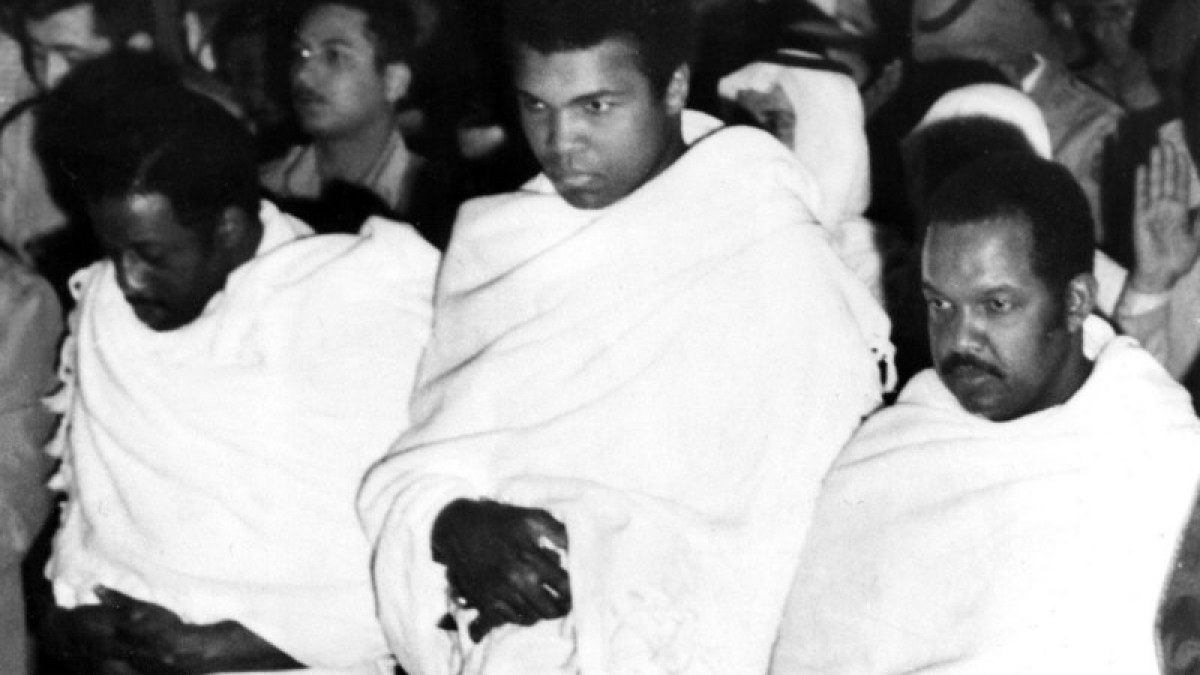What Muhammad Ali’s Funeral Will Teach Us About Islam

Thursday, we will see the most widely covered Muslim funeral in our nation’s history. No one would’ve been happier about this than Muhammad Ali.
Ali wanted to be an ambassador for Islam in America, as he told us in his 2005 book The Soul of a Butterfly: Reflections on Life’s Journey, co-authored with his daughter Hana. In it, he shared an unfulfilled dream he had harbored, “I sometimes thought I would like to be a Muslim Billy Graham.” He continued: “But God had a different plan for me.”
That “plan,” of course, was Parkinson’s disease. It was only through his Muslim faith, Ali continued, that he “could deal with this challenge… it was my faith that restored my sense of purpose and self-confidence. My faith gave me back my joy and enthusiasm for life.”
It’s hard for me not to cry reading that. To cry that a man who called himself “The Greatest” and had achieved so much knew that Parkinson’s made the beautiful dream he had for next phase of his life impossible.
And to cry tears of regret that if Ali could have fulfilled his dream of being a bridge between Muslims and our fellow Americans, perhaps our community wouldn’t be in the place we find ourselves in today.
That’s a dark, challenging and often lonely place. One where politicians like Donald Trump demonize us to score political points. A place where hate crimes against us have spiked over the past year. Where Muslim American students being bullied for their faith is no longer the exception, but the disturbing new norm.
On a personal note, I can’t help but think of the traditional white cloth my late father was wrapped in after the ceremonial washing of his body—just as Ali will be before his funeral Thursday, when many Americans will have a new experience and even learn a new word: Janaza. That’s the Arabic word for funeral, and one Christian Arabs also use.
For Muslims, however, Janaza signifies the Islamic funeral ritual. As New York City based Imam Shamsi Ali explained, at Thursday’s Janaza for Ali, Zaid Shakir will offer a traditional prayer that asks God for “mercy, forgiveness of Ali’s sins and acceptance of Ali into heaven.”
Imam Ali, a national leader in the area of interfaith work, explained that the Islamic funeral prayer is very much like the ones offered at Christian and Jewish funerals of seeking mercy, forgiveness and acceptance into heaven. “We may use different words or even languages but all three of these Abrahamic faiths share the same common humanity and God,” he remarked.
Some have asked me about the delay in burying Ali, and if that’s a violation of Islamic law. Well, as Imam Ali explained, “typically in Islam, like Judaism, the deceased should be buried as soon as possible.” But he noted that it’s not an absolute mandate, rather “it’s more about appropriateness.” He added that in Ali’s case, it was appropriate to wait so that the family could organize the funeral and memorial service so that the nation could pay their respects to one of its icons—a man who was proudly Muslim, proudly Black and proudly American.
Ali’s prayer service, at the Freedom Hall in Louisville Kentucky, is open to people of all faiths. It will be followed Friday by an interfaith memorial service for the greatest. As the spokesperson for the Ali family, Bob Gunnell explained earlier this week, “Ali spoke of inclusiveness his entire life and we want this to be inclusive of everyone.”
This significance of Ali’s public funeral has certainly not been lost on Muslim Americans. As Dalia Mogahed, the Director of Research at the Institute for Social Policy and Understanding commented, Ali’s “detailed wishes for his funeral prayer and memorial were that they be open to all people and all faiths, a powerful testimony to the inclusive principles he lived by” as a Muslim and an American.
And Dawud Walid, the Executive Director of the Michigan chapter of the Council on American-Islamic Relations, remarked, “In a political climate in which Islamophobia is front and center, his funeral will be counterpunch the ridiculous notion that being a good Muslim and a good American are at odds.”
When a person dies, Muslims traditionally say, “To God we belong and to God we shall return.” Ali may have returned to God, but on Thursday and Friday Ali will bring together Muslims from across the nation to stand shoulder to shoulder with their fellow Americans of different religions and races. Even after his death, Ali is still fighting for the things he so dearly believed in.
Topics: American Muslims, Janazah (Funeral Ritual), Muhammad Ali
Views: 2592
Related Suggestions

















